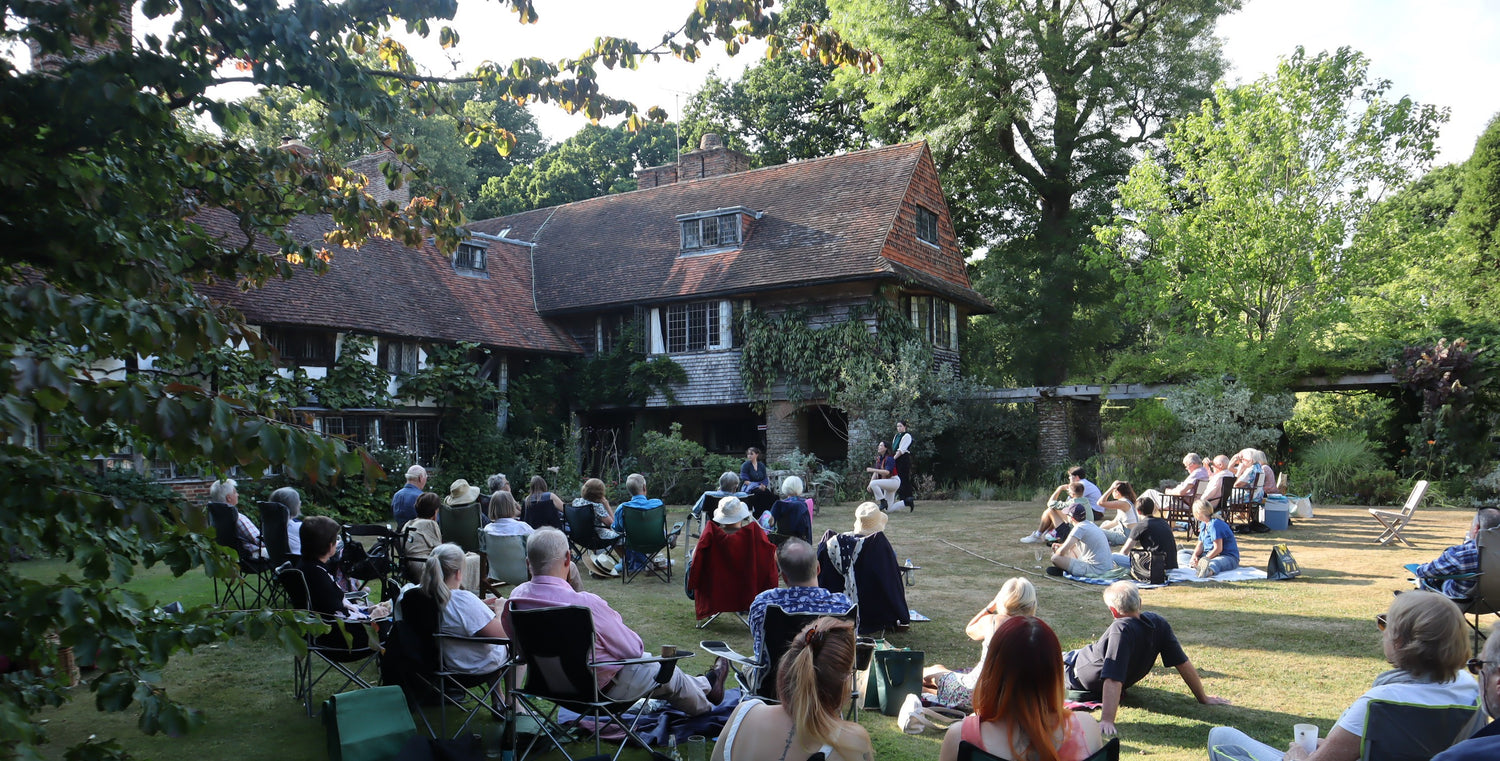
Who Are We?
Troubadour Stageworks was founded in 2017 as an educational arts & theatre charity.
Bring local history to life, rediscover an old classic, or experience new writing in exciting and unique venues alongside our troupe of actors and producers.
About Us

What We Do
We perform in an array of venues for any audience - live theatre, workshops for schools, or work with other organisations on specific projects. We are also setting up a new programme - keep an eye out for an announcement soon!
We have performed in venues ranging from London’s West End and the Edinburgh Fringe, to the Wilds of Wiltshire and a 14th century crypt in Bristol and Stationers Hall to Schools in rural Cornwall.
We are inspired by the Troubadours of old, who travelled the world performing for communities in the venues at their heart; churches, town squares, gardens (and sometimes even theatres)...
We love everything from Shakespeare to musical theatre, and want to tell stories that reconnect us with where we are, with history and culture and - most importantly - with our imaginations.
Access To The Arts Everywhere
Geographic Access
We tour nationwide to any location. We purposefully keep our productions portable and non-tech reliant, meaning all venues are logistically possible.
Funding for The Arts is focused in major urban centres, though the arts council is changing its focus the effect is not yet felt and the South West, currently our main area of operation, is the most underfunded in the UK.
The South West Region received 8.19% of the Arts Council NPO Funding, the lowest distribution in the UK. This includes the figures for museums and many other aspects of the creative arts. If we dig deeper theatre not based in a city of over 60,000 people in the South West has just 6.07% that 8.19% (0.5% of overall annual state funding). Artscouncil: How we invest public money, 2023-26
For rural inhabitants not only does this make the arts distant, there is the added cost of driving to a town, the time it takes, and the necessity of overnight accommodation are all additional prohibitive costs to engaging in live storytelling.
In 2021 I (Mingma Hughes) was told by the headmaster of a rural Cornish primary school that he feared more for the futures of the rural students in his care than his previous inner city pupils, because the inner city pupils had the opportunity to walk to another part of town and see aspiration. A different type of life that can be striven for. In some rural areas, generations of the same family never leave the local town. If a different life is not able to be witnessed, it cannot be dreamt and striven for.
Storytelling can promote literacy and learning development. ‘Using Storytelling to Promote Language and Literacy Development’, Teachers’ Choices Best New Children’s Books, 43, 2 (1987)
Economic Access
Live storytelling is the social and cultural activity of sharing stories, sometimes with improvisation, theatrics, or embellishment. It exists (and existed) to entertain, to inform, and to pass on cultural traditions and values.
Have you ever edited an essay? Isn’t it odd how you always find something more to cut or to tweak. Imagine that experience for centuries - as stories are distilled to fundamental truths through repetition.
One key and magical aspect to oral storytelling was its improvisatory nature: a story told specifically for members of an audience must change subtly to their reactions in order to keep them enthralled. This improvisation is sensed by the audience and therefore it gains a magical atmosphere as they feel they have ‘actively contributed to the birth of a shared unique experience’. Ben Haggarty, op. cit. p.93
Storytelling is part of our historic heritage and should not be gatekeeped by economic access. As such at Troubadour Stageworks we cut everything to keep costs low: no set, no van, minimal props.
Even so theatre is expensive. It is a gamble - virtually all costs are upfront on the assumption of success. With help from people like you we are able to keep the costs low and offer access to a wider audience.
Story Access
Performing within the familiar.
If you have never experienced theatre before it not just the story that is new: it is the experience of driving to the theatre, buying and checking of a ticket, the shuffle to seats in the middle row, dress code, accepted audience etiquette while lights are down. To the newcomer much can be intimidating.
We bind our stories to local places, the familiar. By creating a stage in any space not only do we create unique shows every evening that complement both space and text equally, we also remove an immediate barrier to access. Shows in familiar locations, with the option for a 5 year old to watch a scene, and then play, for someone with back pain to change between sitting and standing and move around, choose your viewing spot, all allow theatre to be that much more accessible.
In 2022 over 60% of our venues had never hosted live events or been involved in the arts before partnering with us, encouraging them to continue similar projects in the future.
Our approach to text
‘storytelling supports the improved development of critical thinking skills, creativity, active participation/engagement in learning, literacy skills, narrative thinking abilities, self-exploration, and interpersonal skills.’ Denise Agosto, ‘If I Had Three Wishes: The Educational and Social/Emotional Benefits of Oral Storytelling’, Storytelling, Self, Society, 9, 1 (2013)
Now we know why telling classic tales are important, the next question is how.
A story does not need to be dumbed down. It is our jobs as creatives to make original text accessible and that starts with understanding, both through workshops and fundamentally priorities in our rehearsal process. If all the actors understand the text, poetry and underlying themes, that understanding can be passed on.
‘lessons are brought to life through movement as well as through a storyteller’s words, retelling ancient and eternal lessons in which lie emotional truth.’ Rodney Frey, ‘Re-telling one’s own: storytelling among the Apsaalooke’, Plains Anthropologist, 28 (1983), 129-35.. P.131
We were struck last season by audiences, both in The Odyssey and Romeo and Juliet, reporting their bemused pleasure that, though we stuck true to the parts that were 17th and 18th century poetry, they found our approach both accessible and understandable.

Our Team
| Artistic Director |
| Mingma Hughes |
| Development Director |
| Judith Morgane |
| Trustees |
|
Nova Robinson (Chairperson), Susan Hitch, Ostin D'Silva, Colin Howard
|
Make a donation - Help us Mistress Quickly!
There are no wealthy backers here.
Make a donation to Troubadour Stageworks to bring new performances to unique venues for everyone.
Your money will go towards our core costs, such as keeping our website running and paying our team and our actors; towards keeping our costs for children's tickets and school workshops low; towards improving our performances and letting us reach out to historic houses and churches to bring them new audiences.
We welcome recurring donations, or, you can become a member - see all our options here: Join the Troupe.
Thank you for your donation.
Select Frequency
Enter Amount
- Choosing a selection results in a full page refresh.
- Opens in a new window.
